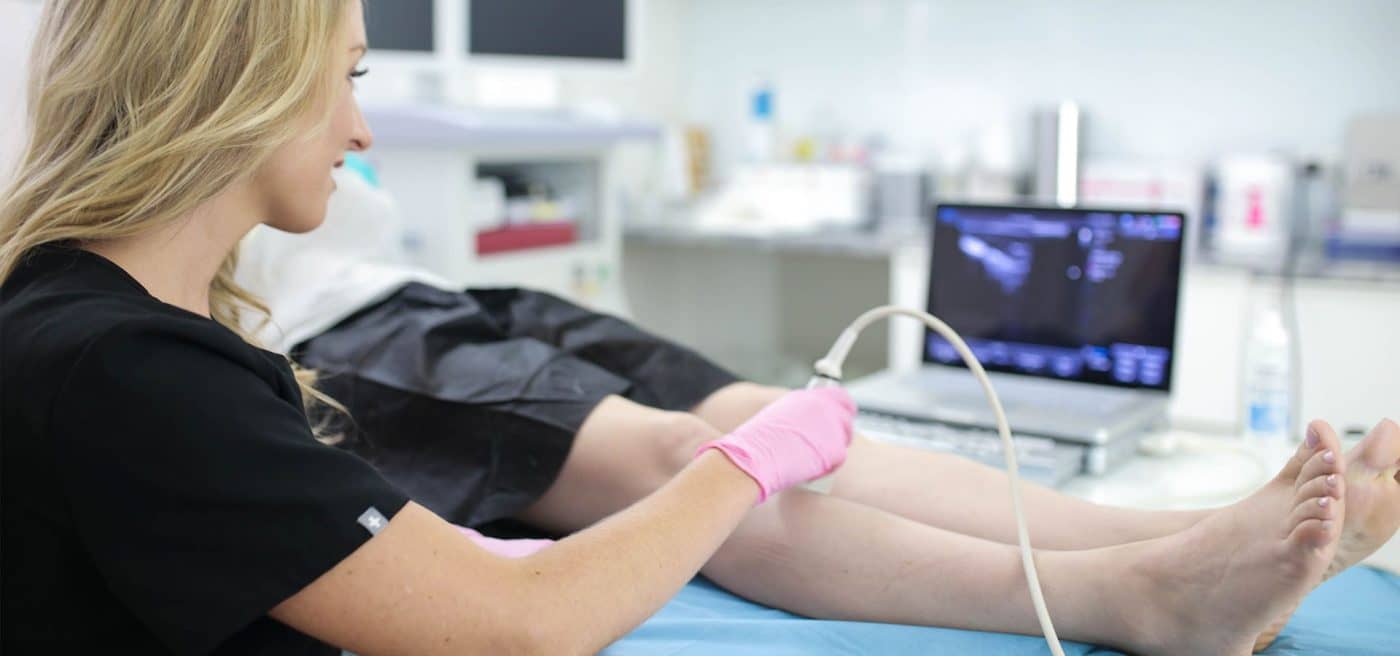What are Some Common Questions to Ask your Vein Doctor?
Do your legs feel heavy and exhausted often? Are your ankles and feet swollen? Can you see the formation of spider veins (thin wispy clusters of blood vessels) on the surface of the skin? Do these symptoms usually get worse at the end of the day or after sitting and standing for long periods of time?
If so, you most likely have vein disease and you need to consult your vein doctor immediately. Chronic venous insufficiency is a dangerous disorder in which your vein walls malfunction, which leads to the accumulation of blood in your leg veins, which, in turn, leads to various complications like the formation of varicose and spider veins, blood clots in your veins, profuse bleeding, skin infections, leg ulcers, and so much more.

A reputable vein specialist NY or vein specialist NJ will provide accurate diagnosis and treatment based in minimally invasive procedures that cause little to no pain or discomfort. When you do find the correct varicose vein treatment center, you should be prepared with a list of questions to ask your vein doctor.
What are some common questions to ask your vein doctor? In this article, we’ll give you a selection of questions that will answer your concerns about vein treatments and help you determine if you’re seeing the right vein doctor.

Are you board certified and what are your qualifications?
The advancements in vein care and technology have made vein treatments extremely effective. However, they have also made it possible for poorly-trained vein specialists to enter the field without proper training. That’s why your primary concern should be ensuring that your vein doctor has the right set of qualifications. That starts with making sure that they have board certification and have been trained at a reputable university — preferably in an Ivy League university.
What vein treatment do I require? And have you performed this procedure before?
It’s not possible to tell you exactly what treatment you require from a brief glimpse of your symptoms. During your preliminary consultation, the vein doctor will thoroughly examine your condition and run a series of tests — including a Doppler ultrasound — to visualize your veins and diagnose the root cause of your symptoms. Following that initial diagnosis, the vein doctor will curate a treatment plan for you. If your doctor hasn’t done a lot of the necessary procedures, you should look elsewhere. Find a vein doctor who is experienced and confident about the treatment.
What treatments do you recommend?
Long ago, surgeries were the primary options for vein disease treatment, even though they have a relatively low success rate and carry a high risk of side effects and complications. Thanks to advancements in vein care, we now have numerous advanced treatment options that cause minimal pain and discomfort. Some of the best minimally invasive vein treatment procedures are radiofrequency ablation, laser ablation, venaseal, and sclerotherapy. These treatments are minimally invasive, don’t require hospitalization, and don’t have any recovery downtime. Your vein doctor should have the necessary equipment and training to perform these procedures. If they recommend treatments like blue light therapy or surgeries, you should look elsewhere.
What is your vein clinic’s success rate?
You should ask how many times the vein clinic has successfully performed vein treatments. Your vein doctor (and the vein clinic) should ideally have a nearly perfect success rate. The aforementioned vein treatments have a success rate averaging at 97%. Your vein clinic should also match or even exceed that success rate.
Will the vein treatment be covered by my insurance provider?
Dealing with insurance providers can be quite a nuisance. That’s why you should find a vein clinic that is affiliated with all major insurance providers and can handle the insurance process on your behalf. Generally speaking, sclerotherapy treatment isn’t covered by most insurances because it’s not a medically necessary procedure since it only treats surface spider veins and not the underlying disease. However, all other vein treatment procedures should be covered by insurance.
How to Find the Best Vein Specialist?
At Vein Treatment Clinic, we have some of the world’s most renowned board certified ivy League-educated vein doctors. They are highly qualified, have conducted countless vein treatment procedures, and they specialize in advanced minimally invasive procedures like sclerotherapy, radiofrequency ablation, venaseal, and laser ablation.
When you come for your initial consultation with the vein doctor, he/she will thoroughly examine your symptoms, check your medical history, and run tests to diagnose the underlying vein disease. Following that, they will proceed to curate a treatment plan that’s perfectly suitable for your needs — one that’s maximally effective and has a minimal risk of side effects. Vein Treatment Clinic is also affiliated with all major insurance providers and we can handle the insurance claims for you so you know exactly what you’ll owe the vein doctor before you go for the treatment.
Vein disease progresses rapidly and can be extremely dangerous. So if you see any signs of vein disease, schedule an appointment immediately.








